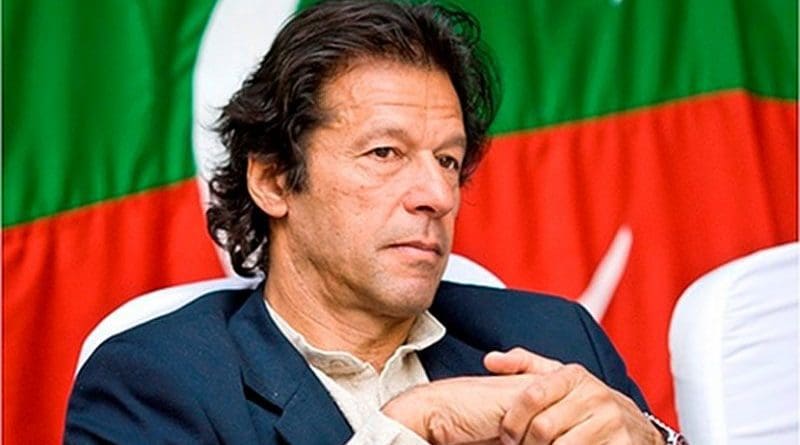Pakistan: The International Dimension Of PTI’s Political Gambit – OpEd
By Dr. Sahibzada Muhammad Usman
In an era where the intersection of politics and public relations on the international stage plays a pivotal role in shaping national destinies, Pakistan finds itself at the heart of a controversial and strategically nuanced campaign. This initiative, led by the Pakistan Tehreek-e-Insaf (PTI) and its leader, Imran Khan, has ignited significant concern among political analysts, policymakers, and observers worldwide. The essence of this campaign is a concerted effort to question the legitimacy of Pakistan’s elections and tarnish the country’s democratic image internationally through a sophisticated lobbying and public relations strategy.
This maneuver, far from being a mere domestic political skirmish, represents a calculated attempt to influence global perceptions and, by extension, Pakistan’s diplomatic and economic relations. The implications of such a campaign are profound, potentially jeopardizing the nation’s international standing, investment climate, and the very fabric of its global credibility.
The documentation unearthed from the United States National Security Division/Foreign Agents Registration Act (NSD/FARA) Registration Unit offers a window into the elaborate and well-funded nature of this campaign. It reveals the engagement of various lobbying firms, including LGS LLC, South/North Communications, and Praia Consultants LLC, by PTI and its affiliates, with substantial financial commitments that underscore the seriousness and scale of this endeavor.
For instance, LGS LLC, contracted by the entity Friends of Democratic Pakistan, commands a monthly fee of $50,000. Meanwhile, South/North Communications and Praia Consultants LLC are on the PTI payroll for $10,000 and $8,333.00 monthly, respectively. These arrangements point to a multi-faceted strategy aimed at crafting and disseminating a narrative that challenges the integrity of Pakistan’s electoral process and its democratic institutions, particularly targeting Western audiences.
The strategy’s execution, evidenced by significant financial transactions and documented interactions between PTI representatives and influential figures in the United States government, signals a deliberate push to sway opinion and policy. This campaign has manifested in a visible social media presence and vocal criticisms from several U.S. Congress members regarding the transparency of Pakistan’s General Elections – 2024, indicating the lobbying efforts’ reach and impact.
The motivations behind this expansive campaign are multi-layered, reflecting PTI’s desire to not only influence domestic political outcomes but also to reshape Pakistan’s image and narrative on the global stage. This endeavor, however, walks a fine line, risking collateral damage to Pakistan’s sovereignty, its democratic narrative, and its relations with key international partners.
Such tactics, while highlighting PTI’s resourcefulness and global outreach, also raise pertinent questions about the ethical and legal ramifications of employing foreign lobbying firms to influence domestic political discourse. This approach mirrors a growing global trend where political entities leverage international platforms and networks to gain an upper hand in local political arenas, challenging the traditional boundaries of national sovereignty and non-interference.
The repercussions of PTI’s campaign extend beyond mere political rivalry, potentially casting long shadows over Pakistan’s democratic processes and its international persona. At stake is not just the legitimacy of an election cycle but the broader perception of Pakistan as a stable and democratic state in the eyes of the world. This campaign, therefore, does not operate in a vacuum but influences Pakistan’s diplomatic engagements, economic opportunities, and its standing in the international community.
Critically, this situation underscores the intricate relationship between domestic politics and international diplomacy in the modern era. The dynamics of this relationship are increasingly influenced by narratives crafted not just within national borders but also on the global stage, where perceptions can be as impactful as tangible actions. In this context, the PTI’s campaign represents a strategic pivot, exploiting the globalized nature of political discourse to serve specific political ends.
The ethical considerations surrounding such a campaign are complex, touching on the sovereignty of electoral processes and the integrity of democratic institutions. The involvement of foreign entities in shaping domestic political narratives poses significant challenges to the principles of democracy and self-determination, raising questions about the influence of external actors on national political landscapes.
As Pakistan navigates this tumultuous period, the international community and Pakistani citizens alike must engage in a critical examination of the implications of such lobbying efforts. The dialogue should not only focus on the immediate political ramifications but also consider the long-term effects on Pakistan’s democratic ethos, its international relationships, and its place in a global order increasingly characterized by interconnectedness and mutual dependence.
Ultimately, the anti-Pakistan lobbying and PR campaign spearheaded by PTI is emblematic of a broader shift in global political strategies, where international influence campaigns become instrumental in domestic political contests. This development highlights the evolving nature of political conflict and competition, where the battleground extends beyond national borders to encompass global perceptions and alliances. As the world watches, the resolution of this campaign will not only shape the future of Pakistan’s democracy but also offer insights into the changing dynamics of international political engagement in the 21st century.

